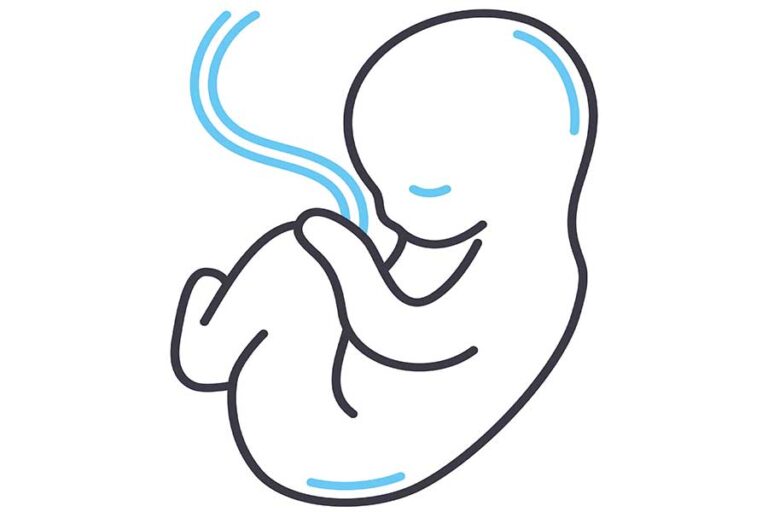Ultimately, these questions and more are essential in understanding the complex and nuanced halachic perspectives on the status of a fetus. It is crucial to approach these discussions with sensitivity, empathy, and a deep understanding of the ethical and moral implications involved. By delving into these questions with an open mind and a commitment to upholding the sanctity of life, we can strive to navigate the intricacies of this important issue in a thoughtful and responsible manner.
Regenerate
The more we think a fetus has the same status as a human being, the more we would assume that the same halachos apply. Thus, the question of whether one can violate Shabbos to save a fetus would be a good test, or control, to determine whether a fetus is considered alive in the eyes of Torah.
Analyzing the Torah Sources
In addressing the status of a fetus in halacha and the Torah’s approach to abortion, the Torah (Shemos 21:22) famously discusses a case where two men are arguing and hit a pregnant woman, causing her to miscarry:
And should men quarrel and hit a pregnant woman, and she miscarries but there is no fatality, he shall surely be punished, when the woman’s husband makes demands of him, and he shall give [restitution] according to the judges’ [orders].
The Gemara in Sanhedrin (79a) interprets this verse as referring to a case where a man intended to strike his fellow man, but instead struck the pregnant woman, causing her to miscarry. The Torah states, as the Gemara explains in Baba Kama (48b-49a), that the perpetrator needs to pay the value of the fetus to the husband.
It is interesting to note that the Torah discusses a case where an abortion is done by accident. However, if one unintentionally kills someone, the halacha is that they are sent into galus (exile), not asked to simply pay a monetary fine? Thus, if abortion were in fact an act of murder, why would an accidental abortion not be treated as an accidental murder, where the punishment is galus? This is seemingly a clear indication that the Torah does not equate abortion with murder, at least not to the same degree as murdering a full-fledged human being.
Furthermore, the Mishna in Niddah (5:3) states that once a child is a single day old, if someone kills this child, they are liable for the child’s murder.
A baby boy, even one day old… one who kills him is liable for his murder.
The Gemara in Niddah (44b) goes on to explain that this is learned out from the Torah source “And he that smites any man mortally, shall be put to death.” (Vayikra 24:17). The Gemara in Niddah 44b states as follows:
The Mishna teaches: And one who kills a one-day-old baby is liable for his murder. The Gemara explains that the reason for this is as it is written: “And he who smites any man mortally shall be put to death” (Leviticus 24:17), where the phrase “any man” indicates that this verse applies in any case, even in the case of a one-day-old baby.
Thus, when the Torah states “any man,” it includes a child who is a single day old. Again, this would seem to imply that if one aborts a fetus, it would not be included in this category. This is exactly how the Ramban (Niddah 44b) understands this Gemara. The Ramban infers that the Gemara is specifically referring to a one-day-old-child. The Ramban states that “this does not include a fetus, since we do not refer to a fetus as a human being.”
Thus, this Gemara reinforces the verse in Shemos which implies that the issur of abortion is not murder. And if the issur is not murder, then this would seem to imply that the status of a fetus changes once it is born. As such, we are still left with the question: what is the status of a fetus according to halacha?
It is interesting to note that the Gemara (Bava Kama 83a) does seem to imply that a fetus has significance as a nefesh. The Gemara states that a certain level of Hashem’s presence (Shechina) only resides on Klal Yisrael when there are 22,000 Jews present. The Gemara then states that if among 21,999 people there was a pregnant woman, but she then has a miscarriage, then this miscarriage would have caused the Shechina to stop resting upon Klal Yisrael.
While one can debate the halachic significance of this Gemara, it is nevertheless a clear source that a fetus has significant status in the eyes of Torah. The question thus becomes, how does this translate in regards to halacha?
In our next article, we will continue to analyze this fascinating halachic topic.
Regenerate means to restore, revive, or renew something that has been damaged or lost. It can refer to physical regeneration, such as the regrowth of tissue in a living organism, or the renewal of a damaged ecosystem. It can also refer to the renewal or revival of a person’s spirit, energy, or strength.
Source link

